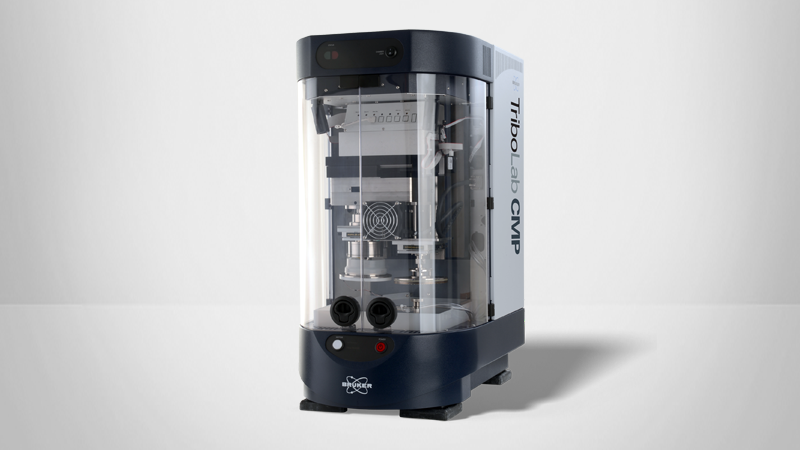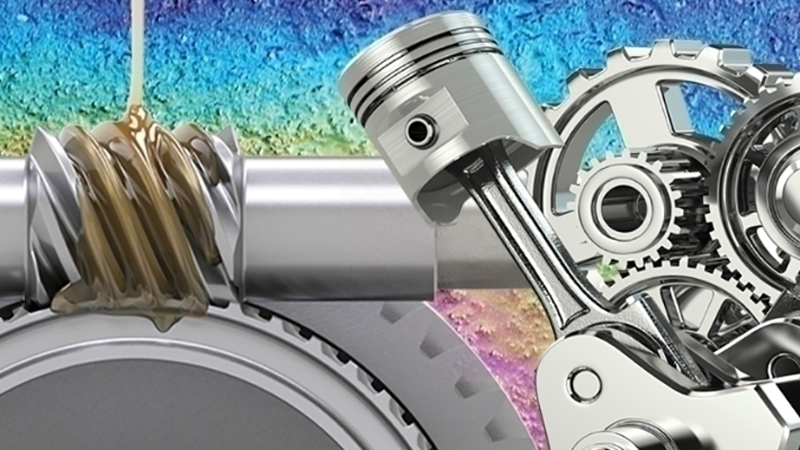

Accelerating Process Optimization and Consumable Development for Chemical Mechanical Planarization
Explore the Benefits of TriboLab CMP
In this webinar, Bruker tribology expert Dr. Farokhzadeh explains the purpose, benefits, and applications of the TriboLab CMP benchtop system, which simulates a full-scale CMP process.
She discusses:
- The background of CMP needs and development
- TriboLab CMP instrumentation and supply materials
- Practical applications and experiments using the TriboLab CMP
Webinar Summary
Chemical mechanical polishing (CMP) is an essential technology in the development of cutting-edge microelectronics. CMP is used for global planarization of dielectric interlayers and polishing of copper damascene architectures, tungsten vias, and low-k dielectric films. The ever-increasing list of semiconductor devices and scaling demands necessitates efficient polishing of a wide range of materials concurrently or sequentially. This increases the complexity of CMP and drives a continual need to optimize process design and control.
Tribolab CMP is a benchtop CMP system that simulates a full-scale CMP process, providing:
- a broad range of polishing pressures and rotational speeds
- coefficient of friction data
- acoustic emission data
- surface temperature data
Several variables can be changed and controlled independently in the experiments, including but not limited to:
- relative velocity
- applied downforce
- wafer shape
- slurry composition and viscosity
- conditioning disc type
- polishing pad type
Each of these parameters have different effects on the wafer-slurry-pad interactions and the experimental results are used in characterizing wafer/slurry/pad interactions, understanding material removal mechanisms, correlating contact conditions to the process parameters in a systematic way, and establishing models that relate material removal rate and friction coefficient to the process parameters.
Tribolab CMP is an effective tool for resolving challenges in the development of consumables such as pad, slurry, and cleaning solutions. It can also provide insight into applications for development and future potential directions.
Find out more about the technology featured in this webinar or our other solutions for Chemical Mechanical Planarization:
Featured Products and Technology
Speaker
Kora Farokhzadeh, Ph.D.
Application Scientist, Bruker
Kora is an application scientist in Bruker’s Tribology, Stylus, and Optical Metrology Group. She got her start in tribology as a graduate student in Materials Engineering, University of Windsor, Ontario, where she focused on dry sliding wear behavior of titanium alloys. She continued that subject into her doctoral studies to investigate surface engineering of titanium alloys for simultaneous wear and fatigue improvements. Later as a post-doc, her work experience can be summarized as surface engineering subjects, including design and fabrication of erosion- and corrosion-resistant cermet thermal spray coatings, wear-resistant polymer composite coatings, and protective coatings for automotive engine applications. Kora’s current role at Bruker lies at the forefront of innovative tribology testing techniques tailored for application, involving wear resistance and friction assessment, screening materials and surfaces by scratch testing and indentation hardness, and analysis of lubricants’ performance for a variety of automotive, biomedical and microelectronics applications. As part of her work, she is an affiliated graduate faculty at Southern Illinois University, collaborating on introducing a new benchtop technique to evaluate the behavior of friction brake materials.

